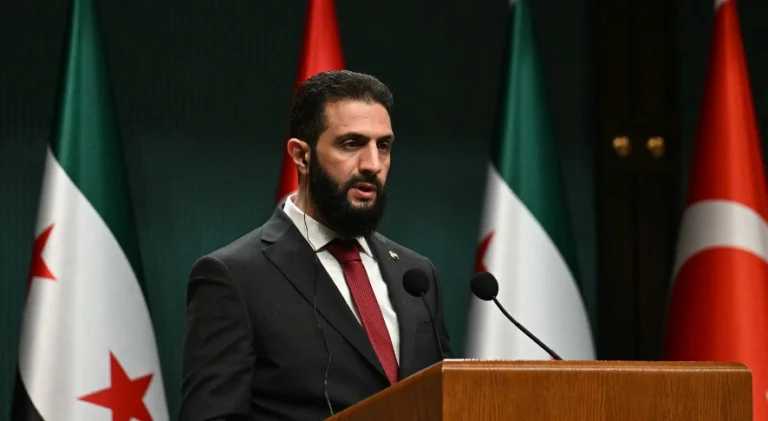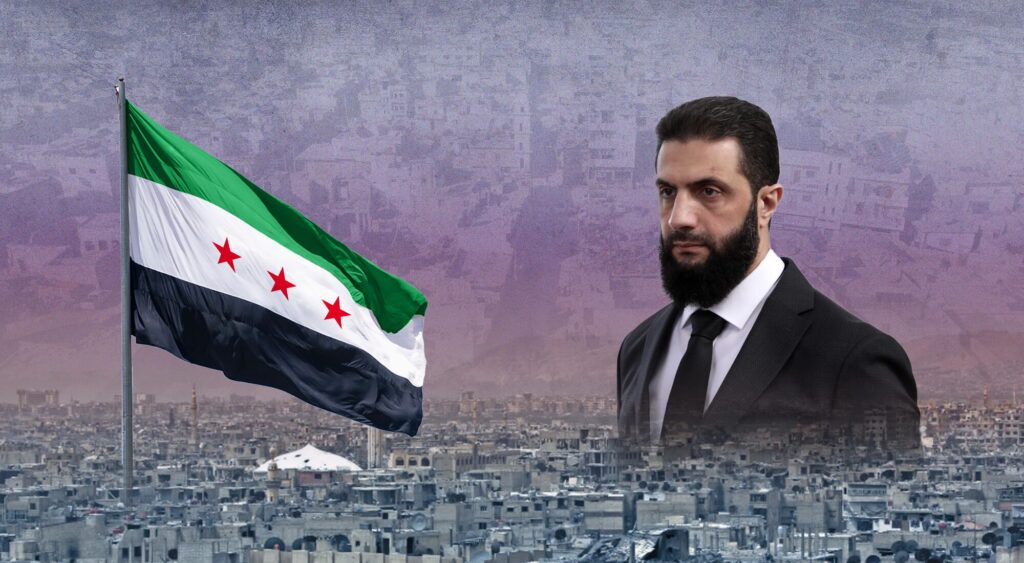5 Essential Demands for a Decentralized and Pluralistic State in Syria’s Rising Political Crisis

Decentralized and pluralistic state for Syria conference with diverse community leaders in Hasakeh Photo: Perplexity 8/8/2025
August 8, 2025 Hour: 6:02 pm
Hasakeh conference urges a decentralized, democratic, and pluralistic Syria with constitutional reform and transitional justice amid ongoing challenges.
5 Essential Demands for a Decentralized and Pluralistic State in Syria’s Rising Political Crisis
Renewed interest in establishing a decentralized and pluralistic state in Syria has emerged after a noteworthy political conference convened in Hasakeh on August 8, 2025. This conference served as a platform for representatives hailing from a wide array of ethnic and religious backgrounds – specifically including Kurdish, Arab, Syriac, Assyrian, Turkmen, Armenian, and Circassian communities – to articulate their vision for the nation’s future. A central theme of their discussions was the proposal to transition Syria towards a democratic governance model. This proposed model places significant emphasis on several key principles. These include the promotion of social justice for all citizens, the safeguarding of religious freedom for every community, and the guarantee of comprehensive citizenship rights for all individuals residing within the country. The discussions underscored the necessity of creating a system where all Syrians, regardless of their ethnic or religious affiliation, are treated equitably and have the opportunity to participate fully in the nation’s political and social life. This article will delve into a comprehensive examination of the key outcomes that arose from the Hasakeh conference. Furthermore, it will analyze the specific proposals put forth for constitutional reform, exploring how these reforms aim to enshrine the principles of decentralization and pluralism into the Syrian legal framework. The analysis will also consider the crucial role played by the Autonomous Administration and the Democratic Forces in shaping the discussions and advancing the vision for a transformed Syria. Finally, the article will address the broader geopolitical implications that are currently influencing Syria’s future trajectory, considering the complex interplay of regional and international actors and their respective interests in the region.

Decentralized and Pluralistic State for Syria: Demands from the Hasakeh Conference
At the opening of this conference, the focus was squarely on building a decentralized and pluralistic state for Syria that truly reflects the country’s multiethnic and multicultural reality. The event, named the Unity of Position for Northern and Eastern Syria, emphasized revising the current Syrian Constitution to include protections and recognition of cultural, territorial, and religious diversity.
Delegates condemned crimes against humanity committed in coastal regions, Sweida, and Christian-populated areas, demanding impartial transitional justice processes to identify and hold perpetrators accountable. The conference stressed the importance of comprehensive reparations and creating a secure environment to facilitate the voluntary return of internally displaced persons and refugees.
The support for the Autonomous Administration of Northeast Syria was underscored as a vital democratic experiment that can integrate into a broader decentralized state structure. The Democratic Forces of Syria (DFS) were recognized as a core element in forging a new, professional, volunteer national army tasked with protecting Syria’s borders and territorial integrity.
Political proposals put forth included reorganizing administrative divisions along geographic and cultural realities and boosting citizen participation, especially by women, youth, and civil society groups. The participants strongly condemned sectarianism and worked toward fostering intercommunity respect and coexistence.
External links:
Geopolitical Context: Implications of a Decentralized and Pluralistic Syria
The conference’s demands arise amid Syria’s prolonged civil war backdrop, multiple foreign actors’ involvement, and ongoing humanitarian crises. The country’s deep-rooted ethnic and sectarian diversity has challenged the notion of centralized power, prompting calls for decentralization to ensure equitable representation and peace.
The implementation of a decentralized and pluralistic state would potentially mitigate longstanding conflicts, reduce authoritarian control, and enable more localized governance that respects cultural and religious pluralism. It would also address political exclusion that has fueled tensions and violence for over a decade.
The recognition and integration of the Democratic Forces, with their successful track record in fighting extremist groups and fostering inclusive governance in northeast Syria, represent a potential pathway for a new Syrian military and political order—provided the central government accepts such structural reforms.
International stakeholders—including the UN, neighboring countries, and major powers—view the evolution of Syria’s governance model as critical to achieving sustainable peace and stability in the region. Support for transitional justice mechanisms and human rights observance remains a priority for rebuilding Syria’s social fabric and addressing war crimes.
External links:
Author: JMVR
Source: Al Mayadeen

